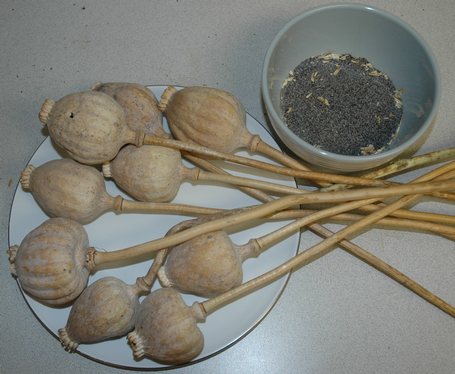China Daily reports tough penalties will be used to end entrenched abuses in the catering industry, such as the use of poppy capsules, a major source of many opiates, and industrial coloring agents, according to the top food administrator.
The State Food and Drug Administration will urge in its 2012 food regulation plan a crack down on the illegal use of additives.
Hotpot broth, beverages and seasonings will be key targets, as they are "danger zones" for food safety  incidents triggered by additives.
incidents triggered by additives.
Although some restaurant chains vouched for their food quality and said they have food safety specialists at every outlet, some hotpot stores still use poppy capsules, which can even lead to addiction, insiders said.
"It’s easy to obtain poppy capsules from familiar sources," said Fan Shengwu, deputy secretary-general of the Henan Provincial Restaurants Association. "Campaigns are only temporary remedies, and law breaking will resume."
The city of Leshan, Sichuan province, launched a campaign in 2008 to crack down on the use of poppy capsules after city authorities found 12 out of 401 restaurants used the substance in hot pots.
Technology and cash – higher rewards for whistleblowers – are good ways to punish law breakers, according to some food safety experts.
"Electronic monitors in restaurant kitchens can provide a panoramic view of the action," said Qiu Baochang, head of the lawyers’ group of the China Consumers’ Association.
